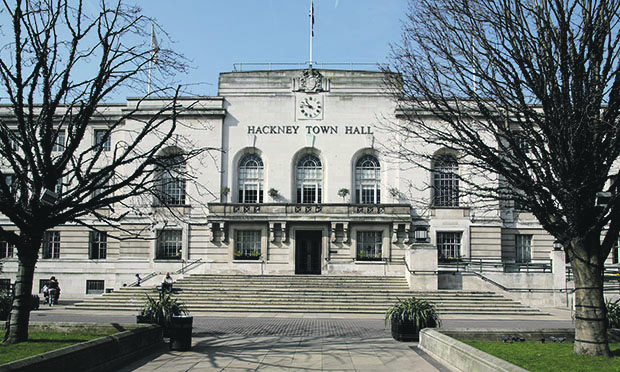Hackney Council to table Black Lives Matter motion next week

Hackney Council is to vote next week on a motion stating “unequivocally” that Black Lives Matter, which would commit the Town Hall to not just tackle inequality, but to be an explicitly anti-racist organisation.
The Labour motion, brought forward by the Town Hall’s No Place for Hate champion Cllr Sade Etti and seconded by Cllr Susan Fajana-Thomas (Stoke Newington) would compel the council to publish its programme of anti-racist work, while asking institutions across the borough to pledge their commitment to anti-racism.
It would also further solidify the partnership between the Town Hall and youth-led police scrutiny group Hackney Account, as well as setting the council’s education department the task of providing guidance to the borough’s schools to create curriculums highlighting Britain’s role in upholding systemic racism and Hackney’s diverse local history.
The motion reads: “Hackney Council recognises the systemic racism and inequalities that still exist in the UK today, and that the murder of George Floyd on 25th May in Minneapolis, at the hand of the police, resonated with Black communities in Hackney.
“The council stands in solidarity with Black communities in Hackney, the UK, and across the world who face systemic racism every day.
“Hackney Council states unequivocally that Black Lives Matter.”
If voted through next week, the Town Hall would commit to improving the diversity of its senior leadership, with the aim of maintaining its ‘Excellent’ rating awarded through the Local Government Equality Framework (LGEF).
The Hackney branch of trade union Unison called out the council for the “higher rates of dissatisfaction amongst Black, Asian and minority ethnic and disabled staff” highlighted in the LGEF peer review carried out in 2018, which also spoke of a “visible gap of Black and ethnic minority staff at senior levels despite the fact that they are over-represented in the workforce more generally”.
The council recently rolled out Inclusive Leadership Training to improve diversity in its workplace and tackle unconscious bias, a programme equalities lead Cllr Carole Williams has urged the Metropolitan Police to adopt.
The motion adds: “Hackney Council believes the early progress made by the police on implementing the Macpherson recommendations 20 years ago have been seriously marred, and measures to transform the attitude of the police towards race relations and improve accountability have not gone far enough.
“Hackney Council commits to being an anti-racist organisation, one that does not just tackle inequality, but actively fights racism in the borough.”
A review was also recently launched by the Town Hall into public spaces and statues that glorify Britain’s colonial past and the slave trade, with Hackney also the first council in the UK to pass a motion pledging to oppose the criminalisation of Windrush families and press the government for a public enquiry.
Under the terms of the motion, the council would also lobby the government to implement any outstanding recommendations from the 2017 Lammy Review into the treatment of and outcomes for Black, Asian and minority ethnic individuals in the criminal justice system, the 2017 Dame Angiolini Report into deaths and serious incidents in police custody, the 2018 Lessons Learned review following the Windrush scandal, the 2017 McGregor-Smith Review on race in the workplace and the 1999 Macpherson report highlighting systemic racism in the police.
The motion also highlights the fact that Black people are almost 10 times more likely to be stopped and searched and 40 times more likely under Section 60 powers, with the use of handcuffs by the police increasing by 158 per cent in Hackney over the last three years.
According to a 2018 study by the Equality and Human Rights Commission, 35.7 percent of ethnic minorities in the UK were living in poverty.
Black Caribbean and mixed white/Black Caribbean children have rates of permanent exclusion about three times that of the pupil population as a whole.
A recent Public Health England report found that Black, Asian and minority ethnic communities have been disproportionately impacted by Covid-19, with people from Black, Bangladeshi, Pakistani and Indian backgrounds up to twice as likely to die from coronavirus compared to white people.
